All-new electrified models:
- Audi joined the electric vehicle race with the Audi e-tron crossover SUV, its first all-electric production model. The e-tron gets over 200 miles per charge and shows of a luxury design and has all-wheel drive performance.
- The Jaguar I-Pace was launched, with a sporty design and luxury appointments, and a 240-mile all-electric driving range.
- The Porsche Cayenne E-Hybrid is an all-new version of the plug-in hybrid model. It’a powered by a 3.0-liter gas engine and a 136 hp electric motor.
- The Range Rover P400e is a plug-in hybrid variant of the Range Rover SUV. It comes with a 2.0-liter gas engine and a 114 hp electric motor.
- The Hyundai Kona is now available in an all-electric variant that delivers 258 miles of range.
- The Mitsubishi Outlander PHEV finally made it to America. The full-size SUV runs off of a 2.0-liter gas engine and two electric motors, plus greater efficiency and AWD.
- The all-new Volvo XC40 compact SUV, the first model built on Volvo’s Compact Modular Architecture (CMA), features an efficient four-cylinder Drive-E powertrain.
- Toyota has changes to its hybrid lineup. The Avalon Hybrid is longer and lower and higher mpg, with its 2.5-liter four-cylinder engine and all-new Toyota Hybrid System II powertrain. The all-new Lexus ES 300h comes with a fourth-generation hybrid system delivering a class-leading 44 combined mpg. The Lexus UX entry-level luxury model now comes in the UX 250h hybrid version.
- The Honda Insight comes in its third-generation version with an advanced two-motor hybrid system that delivers an EPA estimated 55 highway mpg.
- Kia and Hyundai will launch electric crossovers in 2019, named the Niro and Kona respectively. Hyundai also has a new fuel cell vehicle, the Nexo, available in regions where it can access hydrogen filling stations.
- On the commercial vehicle and fleet side, Workhorse Group has closed a financing round of $35 million with Marathon Asset Management, with $25 million being a revolving credit line to meeting existing and future purchase orders of its electric trucks.
- Daimler Trucks is leading a $155-million investment round in electric bus maker Proterra; with Tao Capital Partners, a San Francisco investment firm, as the other lead investor. Daimler sees a growing market for electric buses as public transit districts and school systems in the U.S. and around the world move to reduce emissions. Proterra and Daimler also have an agreement to explore the electrification of a few Daimler heavy-duty vehicles.
Plug-in vehicle sales: Finalized plug-in vehicle sales figures will be coming out in the next  few days for December and all of 2018; but so far, it was clearly a year of record-setting plug-in hybrid and battery electric vehicles sales in the U.S. Through November, U.S. sales were at 312,887 for plug-in vehicles, compared to 194,479 for all of 2017, according to Electric Drive Transportation Association. Assuming 350,000 units will be sold in 2018, the increase would be about 55% over the previous year. InsideEVs estimates the Tesla Model 3 closed the month with 25,250 sold in the U.S. That compares to 18,650 sold in November. Lately, there’s been a wide gap between the Model 3 and every other plug-in vehicle sold in the U.S., with top sellers like the Tesla Model S and Model X, Chevrolet Bolt and Volt, and Toyota Prius Prime, each hovering somewhere around 3,000 units sold per month. The Nissan Leaf was able to see its first sales increase in a long time.
few days for December and all of 2018; but so far, it was clearly a year of record-setting plug-in hybrid and battery electric vehicles sales in the U.S. Through November, U.S. sales were at 312,887 for plug-in vehicles, compared to 194,479 for all of 2017, according to Electric Drive Transportation Association. Assuming 350,000 units will be sold in 2018, the increase would be about 55% over the previous year. InsideEVs estimates the Tesla Model 3 closed the month with 25,250 sold in the U.S. That compares to 18,650 sold in November. Lately, there’s been a wide gap between the Model 3 and every other plug-in vehicle sold in the U.S., with top sellers like the Tesla Model S and Model X, Chevrolet Bolt and Volt, and Toyota Prius Prime, each hovering somewhere around 3,000 units sold per month. The Nissan Leaf was able to see its first sales increase in a long time.
Mobility going mainstream: Mobility services like ride-sharing and car-sharing are moving beyond initial excitement by early adopters and over to the mainstream. The Mobility Revolution: A Primer for Fleet Managers, explores four trends that are shaping the near-term future of vehicles and transportation — connected, electric, shared, and autonomous vehicles. The study was sponsored by NAFA Foundation as a tool for fleet professionals to prepare for the near future. The pressure is on for fleet managers and operators to reduce fuel consumption and carbon emissions, make their fleets safer, and to try out connected, automated systems for these goals and cost containment. The paper delves into ways that fleets are already testing and exploring these changing technologies and methods, featuring a few successful case studies. Another watershed moment in this new year will be seeing ride-hailing company Lyft beat much-larger rival Uber in filing for an initial public offering. Lyft has been valued at about $15 billion, with its IPO slated for the first half of 2019, sources have told Reuters. Uber is expected to pursue an IPO next year that could value it at about $120 billion. Room rental company Airbnb Inc, valued at $31 billion, is also seen listing in 2019.
Autonomous vehicle test projects: When, oh when, will autonomous vehicles move beyond the testing phase and be given the green light? It’s not clear, but more companies are entering the testing phase in California and others states. Uber is starting to recover from nine months ago when one of its autonomous test vehicles struck and killed a pedestrian in Tempe, Ariz. The return to road testing in Pittsburgh will be at a much smaller scale than the company’s previous program. Another significant event was learning that Alphabet’s Waymo self-driving Chrysler Pacifica plug-in hybrids have been through nearly two dozen attacks from irate locals in the Chandler, Ariz.. Over the past two years, irate locals have expressed frustration with tire slashings and pelting these vehicles with rocks. One local resident made multiple attempts to run Waymo vehicles off the road using his Jeep Wrangler, including driving toward one of the Waymo minivans head-on before turning away. He said it came from a Waymo vehicle nearly hitting his 10-year old son while the boy was playing in a neighborhood cul-de-sac.
The battery war continues: Battery maker 24M just received $22 million in funding for its SemiSolid lithium-ion battery that would beat Tesla and other automakers in electric vehicle driving range and energy storage. The startup company, made up of Massachusetts Institute of Technology (MIT) scientists and a former A123 Systems co-founder, offers longer driving range, lower battery cost, and faster manufacturing time. The company is also targeting the grid energy storage market, competing with Tesla’s energy storage unit, along with Daimler, BMW, Renault, Nissan, and other automakers. The SemiSolid speeds up the manufacturing process by cutting out a number of steps typically used in EV battery production. It also cuts down the need for materials such as copper, aluminum, and plastics. That will bring down the battery’s costs and the amount of energy needed to charge up the EV batteries.
Renewable energy trends: Renewable energy went up a point in 2018 — up to 8% of U.S. power generation through the third quarter of 2018. There’s been a lot of concern over America’s trade war with China that includes renewable energy, but demand continues to grow. One study sees growth continuing in 2019, based on emerging policies that support renewable growth; expanding investor interest in the sector; and advancing technologies that boost wind and solar energy’s value to the grid, asset owners, and customers. Growth was driven by declining wind and solar generation costs, improvements in battery storage, and grid operators’ growing experience in integrating intermittent renewable power into the grid. Demand was strong, as well, with voluntary procurement (purchases not driven solely by government incentives) representing 52% of utility-scale solar projects in development and 73% of projects announced in the first half of 2018.
The trade war may change course: The U.S. and China may be ready to end, or adjust, the trade war started last year by President Donald Trump. A U.S. government delegation will be traveling to Beijing next week to hold trade talks with Chinese officials, according to two people familiar with the matter who spoke with Bloomberg. The Trump administration launching the trade war — which added more than $200 billion worth of imports from China by the third quarter of 2018 — is considered a key factor in destabilizing oil prices last year. It’s also hurting China’s weakening auto sales, which is seeing its first decline in two decades — during a time U.S. auto sales are expected to decline. Tesla’s CEO Elon Musk and other automotive executives were pleased to see China reduce tariffs to 15 percent from 40 percent after that meeting. Tesla was able to lower prices for its Model S, Model X, and Model 3, which are scheduled to be delivered to customers early next year. BMW AG and Daimler AG were able to cut prices on their U.S.-made luxury vehicles, bringing prices down to the level there were at before the extra duty was added last July. Automakers in the U.S. are waiting to see whether Trump will be hitting vehicle imports with tariffs.
Hydrogen fuel cell vehicles and stations: Hyundai has delivered its first Nexo hydrogen fuel cell SUV in the U.S. market. The 2019 Nexo – which replaces the Tucson Fuel Cell – can go up to 380 miles, starting at $58,300 (including $13,000 on its hydrogen fueling card). It joins the Toyota Mirai and Honda Clarity in the fuel cell vehicle market.
The California Energy Commission and California Air Resources Board released a report in late December with some interesting numbers:
- Public support and public funding remain necessary to achieve the 100-station goal, and more funding will be needed to support the 200-station goal.
- The current network of 65 stations (including those still in development) provides enough fuel for the existing FCEV population, but capacity will need to double by 2024 to meet projected FCEV growth.
- Estimated greenhouse gas emissions reductions from funded stations are nearly 76,000 metric tons of carbon dioxide equivalent per year by 2024.
- More than 5,000 FCEVs are registered in California as of October 2018, nearly double the number from the previous year.
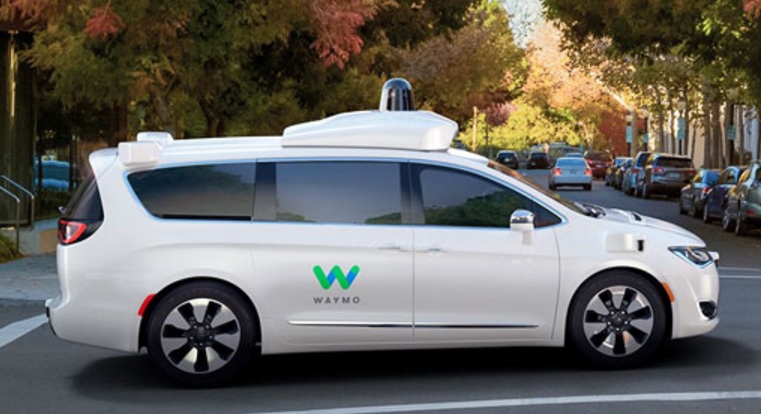 vehicles won’t be as safe as vehicles currently on roads. Nearly two-thirds of the U.S. adults participating in the survey said they would not buy a fully autonomous vehicle, and the same amount balked at the prospect of paying significantly more for the added features. AVs will be staying in the test phase for a few more years. Companies such as General Motors, Tesla, Waymo, Alphabet, Uber, and Lyft, will continue testing the technology and trying out convenient mobility and shared ride experiences for users. Fleets will continue playing an important role in advancement of the technology through projects such as truck platooning, electric automated shuttle vans, and urban delivery showing positive signs of potential for adoption. Safe travel is a key issue, as Tesla and Uber have discovered in fatal incidents involving AV technology in recent years. But as marketers of electric vehicles know, building up mass adoption of a radical new technology takes millions of miles and a few years of positive driver experiences.
vehicles won’t be as safe as vehicles currently on roads. Nearly two-thirds of the U.S. adults participating in the survey said they would not buy a fully autonomous vehicle, and the same amount balked at the prospect of paying significantly more for the added features. AVs will be staying in the test phase for a few more years. Companies such as General Motors, Tesla, Waymo, Alphabet, Uber, and Lyft, will continue testing the technology and trying out convenient mobility and shared ride experiences for users. Fleets will continue playing an important role in advancement of the technology through projects such as truck platooning, electric automated shuttle vans, and urban delivery showing positive signs of potential for adoption. Safe travel is a key issue, as Tesla and Uber have discovered in fatal incidents involving AV technology in recent years. But as marketers of electric vehicles know, building up mass adoption of a radical new technology takes millions of miles and a few years of positive driver experiences.



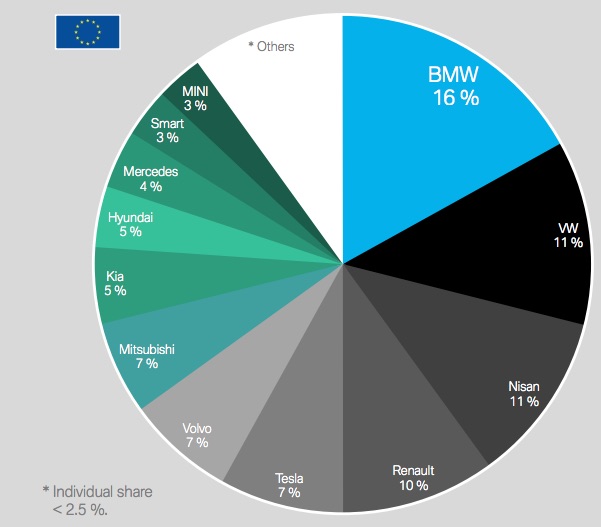 report
report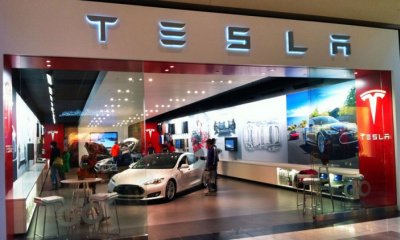 the high costs of running sales offices. Tesla wants to keep its pricing competitive especially on the Model 3 that starts at $35,000 while increasing the profit margin. The company does benefit from hosting invitation-only ride-and-drive events in major cities, which takes away some of the imperatives to operate retail stores. It will also be the hub for the next electric vehicle coming out,
the high costs of running sales offices. Tesla wants to keep its pricing competitive especially on the Model 3 that starts at $35,000 while increasing the profit margin. The company does benefit from hosting invitation-only ride-and-drive events in major cities, which takes away some of the imperatives to operate retail stores. It will also be the hub for the next electric vehicle coming out, 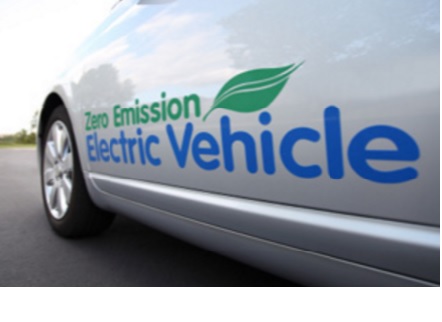 Resources Board had been meeting in December with Environmental Protection Agency and National Highway Traffic Safety Administration officials to reach a compromise between the state and federal standards. The goal had been to reach agreement by late March or early April to modify the Obama administration’s corporate average fuel economy rules. Tensions between California and other states that follow California’s zero emission vehicle guidelines had been building. The conflict has been exacerbated during a time California has been leading a group of 16 states in a lawsuit to block Trump’s use of emergency powers to build the border wall. While federal representatives didn’t respond to requests for comments, the fuel economy and emissions stalemate was acknowledged by CARB. “The administration broke off communications before Christmas and never responded to our suggested areas of compromise — or offered any compromise proposal at all,” CARB spokesman Stanley Young said in an email. “We concluded at that point that they were never serious about negotiating, and their public comments about California since then seem to underscore that point.”
Resources Board had been meeting in December with Environmental Protection Agency and National Highway Traffic Safety Administration officials to reach a compromise between the state and federal standards. The goal had been to reach agreement by late March or early April to modify the Obama administration’s corporate average fuel economy rules. Tensions between California and other states that follow California’s zero emission vehicle guidelines had been building. The conflict has been exacerbated during a time California has been leading a group of 16 states in a lawsuit to block Trump’s use of emergency powers to build the border wall. While federal representatives didn’t respond to requests for comments, the fuel economy and emissions stalemate was acknowledged by CARB. “The administration broke off communications before Christmas and never responded to our suggested areas of compromise — or offered any compromise proposal at all,” CARB spokesman Stanley Young said in an email. “We concluded at that point that they were never serious about negotiating, and their public comments about California since then seem to underscore that point.”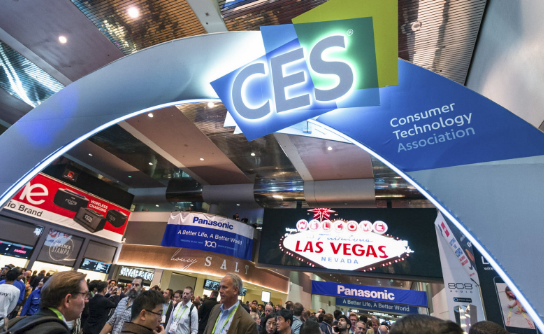 depends on who you ask, but don’t forget about the North American International Auto Show in Detroit. In fact, it clearly beat CES in online attention. The Detroit auto show’s week of news conferences and other events (Jan. 14-17) got nearly 60% more mentions in news and social media than automotive news and topics the week before at CES. That comes from a study by Talkwalker, an advisory company in online marketing.
depends on who you ask, but don’t forget about the North American International Auto Show in Detroit. In fact, it clearly beat CES in online attention. The Detroit auto show’s week of news conferences and other events (Jan. 14-17) got nearly 60% more mentions in news and social media than automotive news and topics the week before at CES. That comes from a study by Talkwalker, an advisory company in online marketing. few days for December and all of 2018; but so far, it was clearly a year of record-setting plug-in hybrid and battery electric vehicles sales in the U.S. Through November, U.S. sales were at 312,887 for plug-in vehicles, compared to 194,479 for all of 2017, according to Electric Drive Transportation Association. Assuming 350,000 units will be sold in 2018, the increase would be about 55% over the previous year. InsideEVs estimates the Tesla Model 3 closed the month with 25,250 sold in the U.S. That compares to 18,650 sold in November. Lately, there’s been a wide gap between the Model 3 and every other plug-in vehicle sold in the U.S., with top sellers like the Tesla Model S and Model X, Chevrolet Bolt and Volt, and Toyota Prius Prime, each hovering somewhere around 3,000 units sold per month. The Nissan Leaf was able to see its first sales increase in a long time.
few days for December and all of 2018; but so far, it was clearly a year of record-setting plug-in hybrid and battery electric vehicles sales in the U.S. Through November, U.S. sales were at 312,887 for plug-in vehicles, compared to 194,479 for all of 2017, according to Electric Drive Transportation Association. Assuming 350,000 units will be sold in 2018, the increase would be about 55% over the previous year. InsideEVs estimates the Tesla Model 3 closed the month with 25,250 sold in the U.S. That compares to 18,650 sold in November. Lately, there’s been a wide gap between the Model 3 and every other plug-in vehicle sold in the U.S., with top sellers like the Tesla Model S and Model X, Chevrolet Bolt and Volt, and Toyota Prius Prime, each hovering somewhere around 3,000 units sold per month. The Nissan Leaf was able to see its first sales increase in a long time.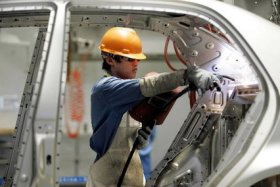 coming close to a record high in the U.S. (which surprised market analysts), that may be a temporary blip. Foreign automakers have 19 assembly plants in the U.S., but General Motors is closing four American plants and Ford is going through a major reorganization. Even so, U.S. auto plants have the capacity to make three million more cars that they can sell. Analysts think that this year’s strong sales come from higher fleet sales, lower unemployment, and Tesla’s rapid production ramp up. Shareholders are putting a great deal of pressure on automakers to lead the way in new products, advanced vehicle technology, and strong profit margins. Automakers have been taking big steps to change over their product lineups (less cars, more trucks and SUVs) and prepare for launching mobility services and a higher volume of electric vehicles. Here’s a look at some of the major events that have been shaping market dynamics in the U.S. and global automotive landscape — and its impact on green vehicle sales and adoption of new technology and mobility………….
coming close to a record high in the U.S. (which surprised market analysts), that may be a temporary blip. Foreign automakers have 19 assembly plants in the U.S., but General Motors is closing four American plants and Ford is going through a major reorganization. Even so, U.S. auto plants have the capacity to make three million more cars that they can sell. Analysts think that this year’s strong sales come from higher fleet sales, lower unemployment, and Tesla’s rapid production ramp up. Shareholders are putting a great deal of pressure on automakers to lead the way in new products, advanced vehicle technology, and strong profit margins. Automakers have been taking big steps to change over their product lineups (less cars, more trucks and SUVs) and prepare for launching mobility services and a higher volume of electric vehicles. Here’s a look at some of the major events that have been shaping market dynamics in the U.S. and global automotive landscape — and its impact on green vehicle sales and adoption of new technology and mobility………….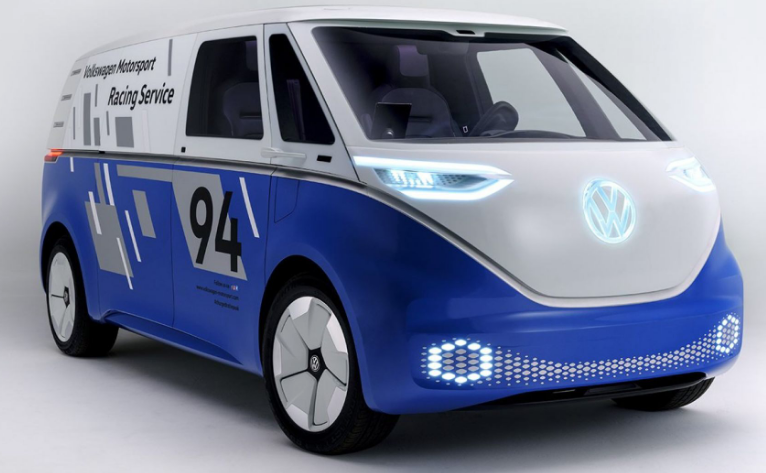 its retro-passenger microbus. It’s the largest vehicle to be built on the German automaker’s Modular Electric Drive Kit (MEB) platform, and it will be getting an expanded version of the microbus with a large rear cargo area in lieu of seats. It will also get a battery pack capable of going 340 miles on a charge. On the other side of the urban mobility scale, the company unveiled the Cargo e-Bike, a three-wheeled, battery-assisted electric bike that it says can deliver cargo up to 463 pounds. It’s expected to enter production in 2019.
its retro-passenger microbus. It’s the largest vehicle to be built on the German automaker’s Modular Electric Drive Kit (MEB) platform, and it will be getting an expanded version of the microbus with a large rear cargo area in lieu of seats. It will also get a battery pack capable of going 340 miles on a charge. On the other side of the urban mobility scale, the company unveiled the Cargo e-Bike, a three-wheeled, battery-assisted electric bike that it says can deliver cargo up to 463 pounds. It’s expected to enter production in 2019.